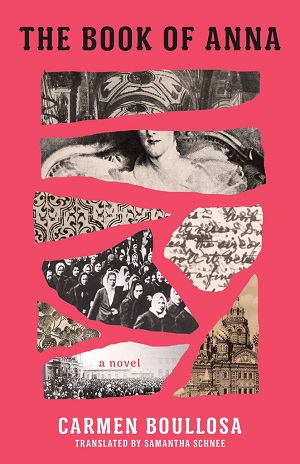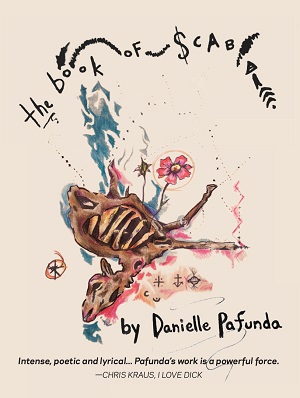
If there is any significance in taking a novel of eight parts and proceeding it with a five part metatheatrical sequel, it is to show that length and history do not make a novel. Instead, imagine the waves of reaction and retelling passing between generations and finally into the hands of writers who take the liberty to create and recreate without shame or fear of traditionalists’ view of text. Leo Tolstoy’s Anna is often negotiated by the temporal and spatial definitions of woman at the time of reproduction. In Carmen Boullosa’s The Book of Anna, one may call into the question the boundaries of a sequel. Boullosa text, and the incredible translation by Samantha Schnee, stretch beyond the imagination by infusing historical references, magic realism, literary criticism, and metatheatricality to spin the yarn of its archetype to gives readers and women a version which we might be able to look at with more than contempt and see a possible outcome more closely aligned with our reality of feminism.
Although I have never been a fan of disclosures, Boullosa’s novel begins with an explanation of the book. Tolstoy’s Anna writes a manuscript which is referenced once then thrown by the sidelines. Here, through her descendants, the work is finally able to come to light – but more than the work, the legacy she leaves behind for her children is something which Boullosa finds might have greater significance than her adultery and suicide. The explanation is also a wonderfully shameless way of giving readers a pass at first needing to read or reread the 864 page predecessor.
Unlike the novels from the 18th century, Boullosa highlights the lives of every social class and pits their lives side by side. The novel opens with a vagabond attempting to bomb a train, a nod to Tolstoy’s novel which tickles the idea of breaking away from canon and promoting a new interpretation of femininity. Rather than focusing on Annas suicide by train, here we get Clementine’s desire to destroy a train – and whatever it may represent for each reader.
Over and over, the characters are juxtaposed against each other through life and death or dreams and reality, “In Claudia’s dream, she exchanges glances with Sergei. In Sergei’s dream, they don’t. But in both dreams Sergei reflects: ‘But I am not completely human. And you know that better than anyone: I am a fictional creation, part of an imaginary drama”. These words are said to a dream version of Tolstoy who is haunting the characters subconsciously as they attempt to decide throughout the novel whether or not to give a painting of Anna to the New Hermitage. I am in awe of the psychological and traumatic retelling of characters like Sergei – to show how much they are aware of their own existence only in terms of their story is something I’m sure many fear before walking into the cold arms of existentialism.
Some of the more meta sections of the novel revolve around Sergei, the son of Anna Karenina. Boullosa maps out for readers each moment and distinction one should make in order to understand the characters as fiction and nonfiction. Sergei exists but he also exists as a fictional character, “Sergei occupies the very same seat that his mother did…It’s like a menacing cloud that burns and asphyxiates him.” I see in these lines something reflective. A technique of writing which can oftentimes be taken to one extreme while craving the other. Poor Sergei is haunted by his past but by participating in society he is also haunted by his existence and is constantly swimming through anxiety made more evident with the block texts that are dedicated to explanation why Sergei is the way he is.
I find that by highlighting the women in the novel as a sort of force to be reckoned with, while leaving Sergei as a sort of manchild, is just beautifully hilarious. So many female protagonists are silenced, especially in classic literature, and here too the men of the novel try to silence them again. Boullosa won’t let them. She gives the women a voice in the way they dress, the way they refuse to feel sorry for themselves, the way they manipulate their husbands carefully to act in a way they find favorable.
If there was anything to dislike about The Book of Anna it may well be the length because when I finished it I actually said, That’s it? I wanted more, and I feel most readers will as well. There is not much closure in the novel and that in itself is a sort of rejection of the stereotypical novel and also a rejection of many of the interpretations of Anna Karenina.
The Book of Anna is available now through Coffee House Press.


